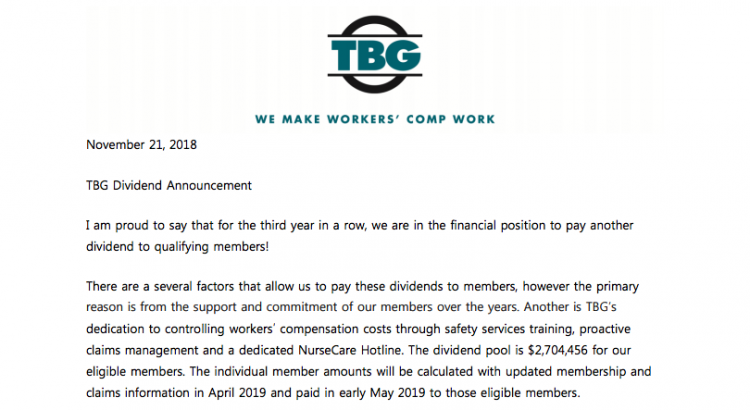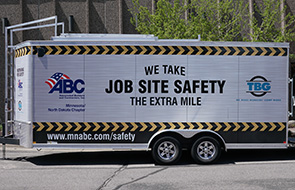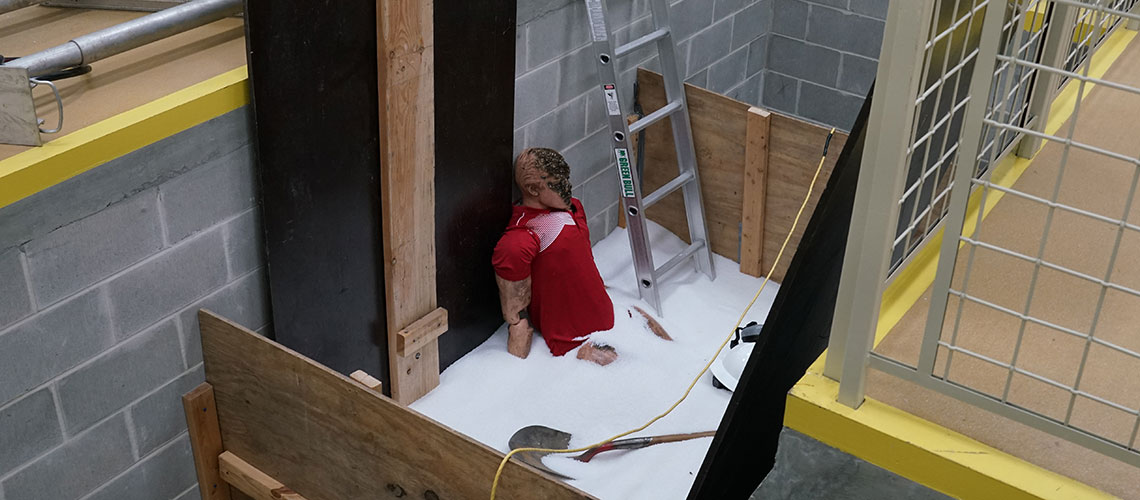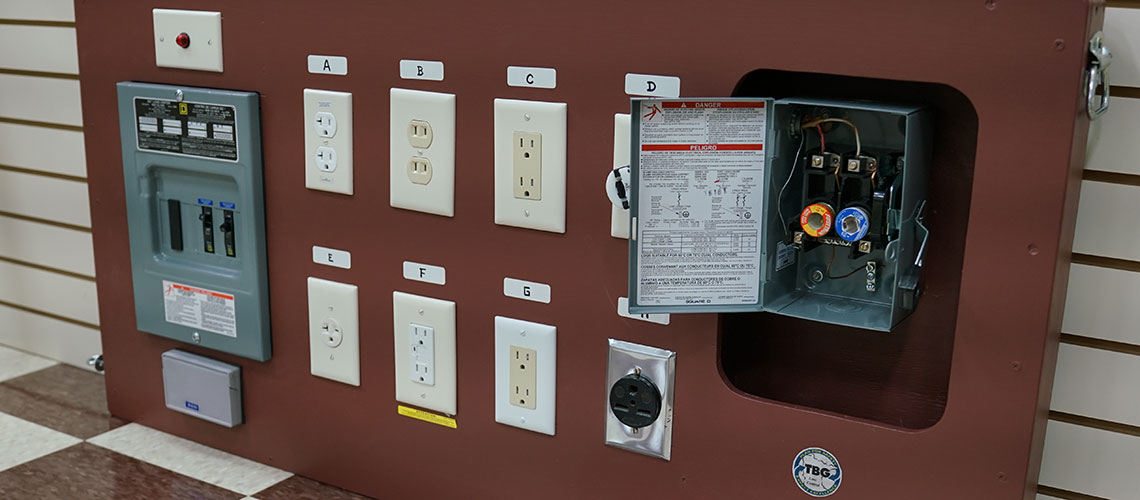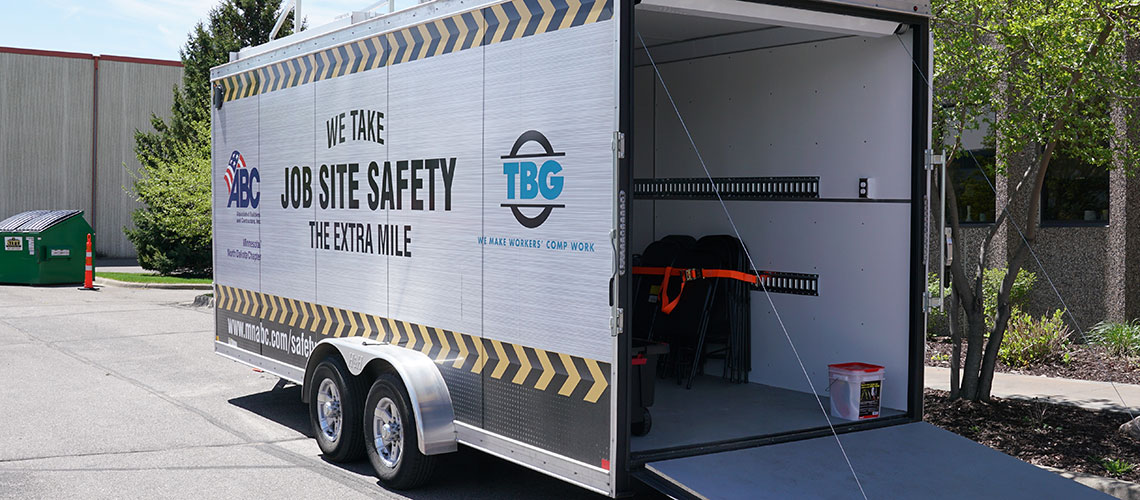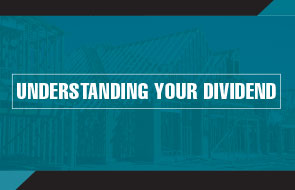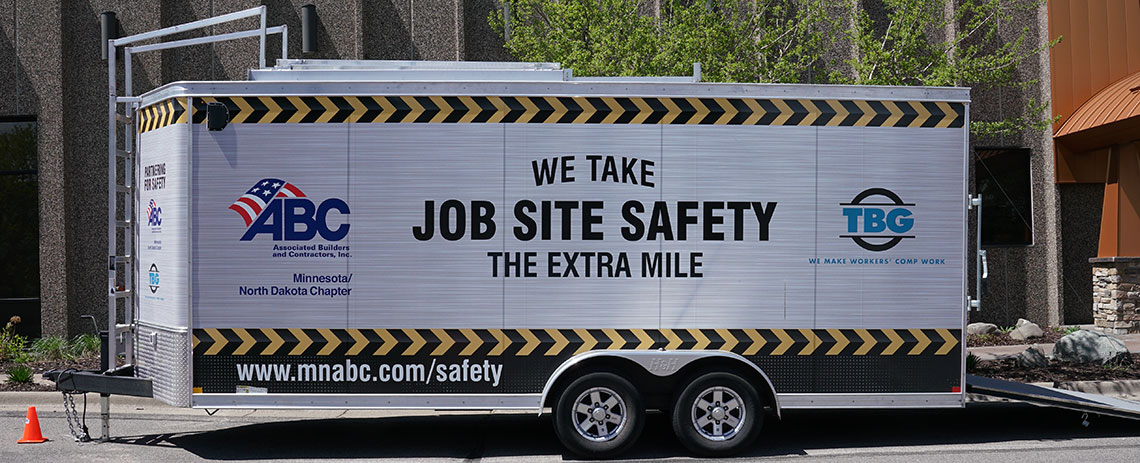
Worker safety pays off in many ways for The Builders Group.
For this 21-year-old self-insured group, a focus on worker safety and an 8,000-square-foot workers’ safety training center is an investment that is literally paying off. TBG is set to distribute $2.7 million in dividends to its members in 2019. That distribution is a direct reflection of TBG’s excellent performance in recent years. The insurer’s surplus has reached $36.4 million, with annual premium now in excess of $40 million.
The company—the state’s largest self-insured construction work comp fund—continues to add new safety features. It has launched a Nurse Care Hotline giving its members’ workers immediate access to medical professionals who can diagnose workplace injuries; recommend first aid; and help injured workers quickly find the best care providers. TBG has also teamed up with Associated Builders and Contractors of Minnesota/North Dakota to deploy a state-of-the-art mobile training facility that brings hands-on safety training to its members throughout Minnesota.
The majority of the training, however, continues to be at TBG’s Safety Services training center, in Eagan at 2919 Eagandale Boulevard. Here, TBG Safety Services offers both classroom training and hands-on training in its demonstration room which is equipped to simulate the work environment. Every year about 4,000 workers participate in 4-to-8 hour sessions, ranging from slip and fall protection (the most common workplace injury) to confined space training; to trench collapse, which is the scariest workplace catastrophe.
TBG Safety Services’ classrooms provide OSHA 10-hour construction safety training courses, which is the only class in TBG’s curriculum that requires a fee. There is also hands-on safety instruction on topics such as electrical, ladder safety, tie-off procedure sand supervisory training among others.
These preventive efforts have combined to help members drive down their workers’ compensation costs. Year-after-year, statistics continue to show that for every experience mod that goes up—two will go down. TBG’s combined ratio last year was 84.1 percent. Its member retention rate 96.5 percent.
While safety training is a critical component of TBG’s steady growth and performance, there are also several other factors according to CEO Stu Thompson. A crucial one is that TBG’s board of directors is comprised of contractors. “That means” he explained, “we have inside knowledge about the daily issues and challenges facing construction. Our board members know their needs, which is what keeps us on the cutting edge.” Just recently, for example, TBG tackled the exposure of Minnesota contractors doing business in other states and worked with an A-rated insurance company to offer coverage to their members.
Another factor was an early adoption of predictive analytics—long before the study of data patterns became popular in the business world. Thompson, who has an MBA in economics from St. Thomas University, began researching how to use data to predict outcomes. Four years ago TBG engaged MillimanMax to aggregate data to help with underwriting and predicting injury outcomes. Consequently, Thompson and the staff are very comfortable with a concept that is just now becoming common in the workplace.
There are, however, some limits Thompson points out. “Sometimes there is disagreement between underwriters and predictive analytics. That is when judgment comes in. For example, if we have an insured with a good safety program and few injuries—but whose analytic score calls for a premium increase—we will almost always overrule the increase.”
Another factor in TBG’s steadily increasing positive numbers has been a strong reliance on automation. Increased efficiency has enabled the insurer to reduce staff from a high of 24 full-time positions to its current 18.5, in spite of increased premiums. The only department that has added members is the Safety Services Team, which will grow again next year. The other department TBG will not reduce is its claims team. There are eight claims people onsite from third-party administrator Mackinaw Administrators (formerly Meadowbrook Insurance Group) giving TBG Claims Services the ability to actively manage injuries and give personal assistance to injured workers during recovery.
The current construction pipeline along with other positive financial indicators bode well for TBG’s immediate future. The construction industry has a backlog of projects and a limited number of qualified workers due to the robust economy.
Thompson added that TBG has also developed the TBG Education Foundation. The foundation was established to provide scholarships and grants to students at vocational schools as well as purchased tools and equipment for various construction education programs. In one case, the TBG Education Foundation partnered with a construction association in northern Minnesota to provide $10,000 to a school that previously had a budget of only $1,500. “Providing insurance coverage is just part of what we do,” he said, “TBG is involved in many aspects of the construction industry.”


